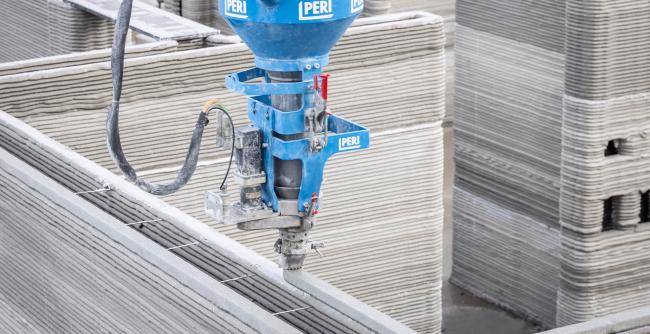Rent-to-Buy: Worth It?
Homeownership is a life goal of many Australians. However, traditional pathways to achieve that target could prove too costly. Having the right income and assets to put up a 20% deposit is nearly impossible for most people. In fact, findings suggest that it could take first-home buyers up to 15 years to save for a deposit. Not only will it take too long, but housing market rates will also likely be even more expensive as years go by. Rent-to-buy or rent-to-own arrangements can provide an alternative to eventually owning a property. In this article, we delve into the concept of rent-to-own, how it works, its potential benefits as well as pitfalls for homebuyers. What is rent-to-buy? Rent-to-buy, also known as a lease-option or rent-to-own, is an agreement that combines elements of renting and buying. It allows tenants to rent a property while also paying an equity contribution that later will be added to the home’s purchase. Renting period The tenant moves into the property and pays rent to the landlord, just like in a traditional rental agreement. During this period, the tenant can save for a down payment, improve their credit score, or address other financial requirements necessary to secure a mortgage. For example, the renting period is set at 3 years; currently, you have the option to work on credit score or save the down payment. After the rental period you then have the option to buy the property for an agreed upon sum. The customer pays a higher-than-usual weekly rent that covers all the costs of putting a stake in the property. To give an example, if the market rent for a home is $500, you may expect to pay $700-800 per month. Renters charge higher rent because it’s meant to add to the property’s final purchase. During the rental phase, the property title is not yet transferred to you. But costs on insurance, maintenance, and stamp duty is shouldered by the renter. The money is not refundable in case you change your mind about purchasing the property. Buying period After the set rental period, developers could either obligate the renter to go right ahead and purchase the property OR have a rent-with-the-option-to-buy arrangement that leaves the renter a choice to not go through with buying the home. If you’re set on buying, you are required to take out a home loan from a mainstream lender. Rent-to-buy provides tenants the opportunity to live in the property for a couple of years while working towards homeownership. With it, you can get a feel for residing in the property before committing to purchasing it. And it allows you to commit to a future price that could potentially save you money once the value increases after a few years. It is not a wildly popular strategy in Australia since there are few government safeguards present in a rent-to-own arrangement versus a traditional mortgage product. In most of these schemes, it is the developer that offers a home or unit for sale with a rent to buy contract. But the overall value could change after the rental period. This means that in some rent to own contracts, you have no set sale price until it’s time to finalise the purchase. You’ll then have the legal right to the property title once you secure a standard mortgage. Which states allow rent-to-buy? Rent-to-own is a relatively new concept in Australia, so it may not be readily available in your location. In Victoria there is a significant concern about protecting tenants/home buyers who may fall for predatory rent-to-buy contracts. The concern paved the way for a report by the Consumer Action Law Centre in 2016 – the report called for a ban on the scheme, and establishment of same consumer protections that regulate conventional home loans. As a result, in 2019 the Victorian Government enacted legislation that bans some of the actions associated with how unjust some rent-to-buy terms are for home buyers. In South Australia, meanwhile, only the South Australian Housing Authority (SAHA) has the legal arm to offer these types of contracts and currently, they do not offer rent-to-buy programs. Any other source of the arrangement when you are in South Australia means the contract is not legally binding and could compromise your home ownership goals. What are the advantages of rent-to-buy contracts? Here are potential benefits: Path to homeownership – Rent-to-own arrangements provide a pathway to homeownership for individuals who may face challenges obtaining a mortgage due to credit history, limited savings, or other financial circumstances. Test the property – Renting the property before committing to the purchase allows tenants to assess if the property and location meet their long-term needs and preferences. This minimizes the risk of buying a property that does not suit their lifestyle or requirements. Time to improve finances – Rent-to-own agreements provide tenants with the opportunity to improve their credit score, save for a down payment, or address other financial obligations necessary to secure a mortgage. No 20% deposit – Since rent-to-own schemes pays a higher rental committing to the home purchase, you don’t need a hefty down payment as you would in a traditional home loan. First Home Owners Grant – Home buyers can be eligible for the First Home Owner Grant if they choose to purchase a property through a rent-to-buy arrangement. What are the risks in a rent-to-buy scheme? As you may have noted now, rent-to-own is inherently riskier than other home ownership paths: No legal right to the property – Until the purchase is finalized, you don’t have any legal right to the property title. That means all the payments during the rent period may be for naught if you have a conflict with the landlord. Uncertain future purchase price – The purchase price of the property is typically agreed upon at the beginning of the rent-to-buy agreement. However, if the property’s value significantly changes during the rental period, the agreed-upon price may no longer be favorable. This could result in the tenant overpaying for the property or facing challenges securing financing based on the inflated purchase price. Struggle with refinancing – Because rent-to-buy contracts are quite expensive for the tenant, borrowers who need to obtain mainstream mortgage after a few years usually fail to do so because they have not build enough equity or have not improved their finances enough come time for the buying period. Non-refundable fees – Tenants are usually required to pay an upfront option fee to secure the right to purchase the property within a specified timeframe. If tenants decide not to exercise the option or are unable to secure financing, this fee is typically non-refundable. Therefore, if tenants do not proceed with the purchase, they may lose a significant amount of money. Changes in personal finances – During the rental period, tenants’ personal circumstances may change. Job loss, financial difficulties, or unforeseen events may impact their ability to secure financing or continue with the purchase. Exiting the agreement prematurely could result in financial penalties or loss of the equity you’ve already contributed as part of the higher rental rates. Is rent-to-own the best choice? Rent-to-own places big financial risk on the home buyer, as the money paid for years may not even result to being able to secure the home during the buying phase. While rent-to-own schemes sound appealing to those who are trying to enter the housing market, its terms and conditions may not be suitable to your specific needs. There are other options that consider non-traditional borrower situations, i.e., low doc home loans, bad credit home loans, and a guarantor home loan. But if you’re curious about rent-to-buy schemes, you can mitigate risks by seeking legal and financial advice – understanding the property’s value, market conditions, and rent-to-buy fine print from the developer is essential before committing to this arrangement. Intellichoice is here to help you get a broader picture or your rent-to-buy options. Our experience in the mortgage and property market can help your decisions be secure and protected from predatory rates and arrangements. Feel free to discuss with us your home ownership plans. Get started today! Darin Hindmarsh See Full Bio

